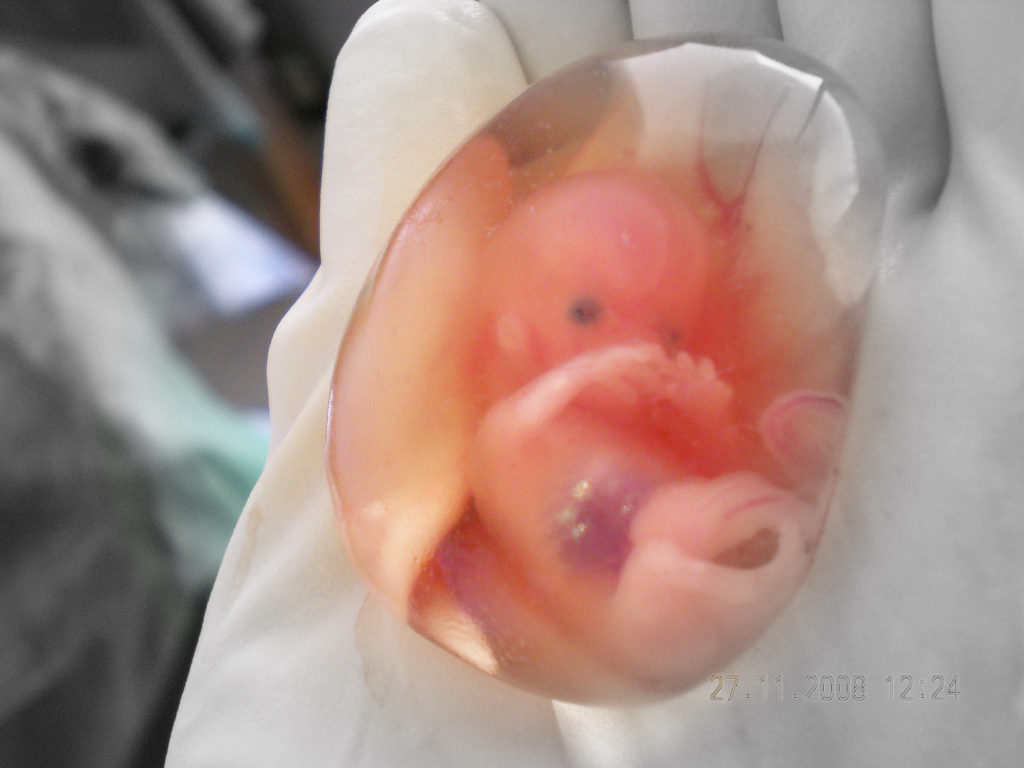What is concrete made of? You probably don’t fucking know. If you do, then shh, or you’ll ruin my tirade. Concrete comes from the word concretus, meaning compact. It was invented by Arabs, or at least its precursor was. Near Syria and Jordan. The people were called Nabateans, and they used their version of concrete to build wells. They made sure the wells were secret, since it gave them an advantage, living in the desert.
Do you know who the Nabateans are? No? (If you do already, then I bet you know far more about them than me.)
Go look them up. They were quite fine traders. They built tombs in the Hejaz that are marvelous to look at. They built a temple in Petra called al-Khazneh, “The Treasury,” carved it right into a giant sandstone rock. The façade has twelve pillars, and the whole front rises up like the entrance to a place of gods. The original structure still exists, but there is a second al-Khazneh now, in the country of Rahma. The first version was really a tomb, but apparently people thought there was treasure there (spoiler: there wasn’t). The second al-Khazneh, however, has quite a lot of treasure, including an item so rare it couldn’t be said to have a price at all. It is left over from the old times, during the Alien Wars you’ve all heard so much about by now. It is a weapon. Not a working weapon, but a weapon all the same. One that could destroy the entire Earth—gasp! And not just in the nuclear way, eradicating all life on the surface, but in an actual annihilate-the-core-of-the-planet way. And that’s just a little bit scary, right?
Scarier still: ten exist.
Less scary: nine of those ten are in the possession of one Niles Tully, perhaps the wisest of all the Caomhnoiri and certainly the least predisposed to violence. He’d built them, after all, so it makes sense he’d taken them back once the whole carnivorous alien threat was gone. In the immediate days following the conflict, various corporations and nations had hurled magnificent sums of money at him for one of these weapons, but he had turned down all comers. He’d even caught a few dozen spies trying to break into his laboratory, although he was so kind he didn’t even tan their hides before putting them on the first ship back to where they hailed from. But somehow, the Rahmans had found one. Well, the somehow was a how, because it had simply fallen from space, out of its geosynchronous orbit, right into their lap. And just like Mr. Tully had refused all offers for his functional nine, the Rahmans turned away all questions and quotes for their dysfunctional one—including Tully himself, who appealed to them first out of planetary integrity, and then out of his own admittedly girthy wallet.
And why was this Rahman weapon inoperative? Because it was missing a key part. And where does one obtain a very rare and technical key part in this day and age? Why, from a mysterious broker online. And how does one find a mysterious online broker?
Just put your lips together and blow.
Tear out someone’s fingernails until they talk.
Wish upon a fucking star.
Or ask your director of intelligence to locate one, which isn’t hard because your director is already plugged in to the undersea world of illicit trade. The caveat being that the necessary piece is exceedingly rare and expensive, which meant it takes a little bit longer than usual to locate it, which is frustrating when you’re used to everything happening at the snap of your fingers. Fortunately, the Emira of Rahma Badir Osman al-Filistini had learned patience, and she had learned patience from her dreams. Specifically, these were the dreams brought on by her medicine because of her aching legs, which had plagued her ever since she was a child, filling her with shocks of pain and making her eyes bulge, which of course led to many cruel taunts and jokes from her classmates, everything from Praying Mantis to Stumbler to Icewalker, so named because her halting steps looked like the timid movements of a little girl on a frozen lake. Emira Badir’s dreams were filled with mirrors breaking for hours under a hot blue sky, shattering pieces winking in the sun, a music that crashed through her head and made her flinch inside the dream, an endless crunching that she somehow grew to love even as it distressed her, so she looked forward to it every night as she took her medicine, and she would even feel restless the next day if she didn’t have the dream, something her psychologist said was evidence that humans could adapt to anything, even repeatedly exploding mirrors. Badir, however, already knew she was adaptive. What she didn’t know was who the mirrors were reflecting, because it wasn’t her. It wasn’t her mother either, or her dead sister, or her father, or grandmother, or Aunt Fatimah, or her hairdresser, or her fighting coach, or her chief aide, or her minister of forests, or her childhood friend Mohammad Tariq, who was the first person she’d thought of marrying, and who’d turned out to be a drug addict who screamed in his backyard pool every night, a bald man with sunglasses, screaming. No thanks.
Badir thought about the potential oneiric-mirror reflection culprits as someone from the Energy Committee briefed her on nuclear reactor output in terawatts as a function of employment, which made no sense to her, but she kept listening, or at least hearing his words, although she fixated on his dry mustache and his brittle skin, the pockmarked craggy cheek, the softball-sized tieknot, the flaky hands, the overpolished black leather shoes, and the way his knee bumped up and down whenever he pointed to the graph he’d expanded before her. They were in the wide gold emira’s chamber, a vaulted dome brimming with festive light.
The emira was seated above the minister, on a raised plinth. She liked the plinth because it felt like an ice floe breaking off from the world, leaving her alone and drifting over the Arctic Ocean, where she could catch up on whistling and naming the fog and thinking of blue rabbits who pulled their own heads off and stored books inside their bellies.
“And that’s why we should eat all the sea urchins raw,” Badir heard him say, or wanted him to say, she was hungry for sushi and ready to end this drawling tete-a-tete, ready for life and stringing lights and coffee.
“I want you to tell me why you should keep your job in three words,” said the emira, looking at his puffy eyes behind glasses.
“What? I—”
“That’s two words,” said Badir.
The nuclear engineer sat up very straight, his blue-and-gold cloak snapping against him. He blinked hard, gulped, then placed a hand on each knee, sitting below his emira, twenty-five meters away.
“Lights,” he said, pointing upward at the illumination of the ceiling.
Badir laughed and clapped her hands, which perhaps was unseemly for some leaders, but not for her. She was adorned in fine silk regalia, with gold necklaces overlapping on her neck, with gold hoops in her ears and great diamond studs above them, her hair uncovered, her body exposed to the degree she wished it, looming grandly in her chair (she was careful not to call it a throne), even though she was small in the huge circular room, she was small within this place that she had not built, but which she had enriched beyond all others’ expectation.
“That is a wonderful answer. See? Not so hard. You know your value. It is important to know your value, your contribution to others, because there are people who will deny your value.”
“Yes, Emira,” said the man.
“There are people who will say that you are nothing, that you do nothing, that in every way they are better than you. I imagine you have encountered one or two people like this in your years.”
“Yes, Emira.”
“I imagine you have countered those barbs to some degree, because you’ve managed to get to the position where you can stand before me. But I also imagine you still have some little whispers at night, gnawing at you.”
The engineer stared carefully at her, then turned his eyes away lest he should seem too familiar.
“We all have these whispers, it’s nothing to hide, nothing to burn with shame over. You think I don’t worry someone is out there, seeking to usurp me? That someone is spreading rumors, lies, even weapons to counter my influence? You don’t think that weighs upon me?”
“Yes, Emira,” said the man.
“Yes, Emira. People say many versions of this to me, all day, in person and over link, again and again like a chant they’ve forgotten the basis of. Yes, Emira. Do those words have any meaning for you?”
“They do, Emira. And you are correct in your earlier imagination, that I have risen to this place by countering my … barbs. And other barbs, as well.”
“Stop saying barbs,” said Badir.
“Yes, Emira. I only mean to say that those words you hear, the ones I repeat, have meaning to me. I appreciate that I am in a position where I’m able to speak them, directly to you. I do not take that opportunity lightly.”
Badir smirked, then signaled for a cup of wine. “You’re a very eloquent engineer, aren’t you? Have you been taking classes with my orator? He smells like dog piss, but he’s quite talented.”
The engineer smiled, very quickly and with his eyes at the floor. “No, Emira. These are only my honest words.”
“What a gentleman. Well, Committee Representative, I suppose I’ve used up enough of your time with my conceptual digressions. Go enjoy your nuclear reactor.”
“Yes, Emira.”
“Don’t let it explode.”
The engineer stopped as he raised himself from his seat, poised in the middle. He nodded to her, then continued rising. “Yes, Emira. I’ll keep it safe. I’ve devoted my life to it.”
Badir smiled at him, sipping from her cup. “So have I.”
When he was gone, the emira summoned her director of finance, the gold-eyed Nazrah al-Jabbar. She was a diminutive woman in a black hijab, her sleeves long and her nails unpainted. She was younger than Badir.
“Have the financial board propose to raise our Committee Representative’s salary by 10 percent,” she said. “Someone wants to poach him from us. I’d like to keep him unpoachable. Add a clause to contribute another bodyguard to his retinue, too, make him feel more important.”
“Who wants to poach him?” Nazrah asked.
“That’s a question for Abdul-Raman,” she said. The director of intelligence.
Nazrah shot her eyes to either side of the room, as if he was lurking there. “Does he ever give a clear answer about anything? It’s always perhaps this, perhaps not. What person would abuse this word so carelessly?”
“A person who wants you to know he doesn’t say maybe,” said Badir.
They both smiled at that. Abdul-Raman was a fastidious man, pious, with a mark on his forehead from praying so often. Those around him joked he only did it so he could gather dirt on God, but they only said this when they weren’t eating lunch with the imams. Sacrilege was well-tolerated in Rahma, but it was nice to be respectful, as long as the imams respected you back. There were still a few old men who resented being led by a woman, but happily they were a minority, shriveled dates with weighty words, twisting the Quran to suit their needs just as the priests and monks of Nazrath tortured Bible lines to justify drone attacks and the murder of queer people. Badir had resolved quite strongly never to let her country fall into the theocratic monstrosity that the Federation of Patriots had become. Proper application of shariah required it—it was against Islam itself to rule by religious dictum, especially when here in the capital itself were thousands of Jews, Buddhists, Cubists, Ba’hai, Hindus, and even Christians, Assyrian and otherwise. None of them paid a jizya, none of them saw any less in the law, a triumph that had been won by wise-hearted emirs over centuries. Rahma was a center of learning, and if Badir wanted to repair the strange aged weapon from the old days, it was not because she wished to wrest more land from Indignenous families, or even crush the wild Christians and their looming stone cross. It was because she had made contact with Cleanskin Chris, and she was terrified of him. Well, Abdul-Raman’s agent had, in the halls of Doxian, posing as a chemical supplier of aspidaritin, a biological shielding solution that conferred a resistance to picoforms. It was generally only used by militaries and rich people, and while an individual seeking to purchase it on the black market was not immediately concerning or surprising, the quantities desired were more unusual: one hundred thousand liters. A person would purchase that much if they were building a private army. Several families and corporations across the continent had private armies, but even they would never need one hundred thousand liters. This was new. New was concerning, which was how Abdul-Raman came to investigate this interested buyer, and to discover that said buyer was Cleanskin Chris, a mildly popular self-help talker and the same person their Guardian Halima had been searching for over the past five months. He was apparently a serial killer, ranging through all cities and countries while using proxies to accomplish his crimes. He represented no nation that they could detect, and he had no ties to any company or clan. His only network, according to Halima, seemed to be other lone men, dispersed by geography, who followed and even collaborated on his killings, an audience ostensibly separate from his self-help crowd, a more private club, as it were. Badir knew what the connection between those groups was. Chris funneled his casual supporters into increasing degrees of fanacticism, until they were ready to pay exorbitant sums of money for “access” and “intimacy,” or whatever word suited his needs at the time. All his media functioned as a pipeline to dead women. The man who thought he was complex was just a caveman who fed himself bullshit to feel powerful. Not that living in a cave made you unintelligent (come on, they harnessed language, wheels, and fire, and actually these days I live in a cave myself, very cozy, cool in the summer, warm in winter), but what else do you call a man who’s answer to emancipated women is a club or a knife?
You’re right. Caveman is the wrong word, rooted in the same irritating, dangerous, Eurocentric brain that pulses in Cleanskin Chris. The proper word is abuser. Language can obscure, or it can wipe away the outer layers and show you the core of things. For many men across many eons, from Thomas Jefferson to Donald Trump to Attila the Hun, the only word of choice is abuser.
And why do people abuse others? Out of suffering, impulsivity, hatred, ignorance, power, lust? Yes, but there is a word beneath those things, humming quietly like the nuclear core within its graphite shield. That word is entitlement. Believing you have the right to impinge upon someone else’s privacy, body, resources, rights. Manifest Destiny, Monroe Doctrine, whatever you’d like to call it (be careful what you call it—that matters). Abuse stems from entitlement. End of story. All those who abuse exercise their privilege to do so, a privilege they don’t deserve and can’t possibly earn, ever. All those who abuse decree their supremacy by fiat, by fist or finance or dismissal. Abusers are like God: they say “let it be,” and in their own deluded minds, it is. And here is the first entitlement of all abusers; they try to create their own universe. And to steal a word from our diligent Abdul-Raman, “perhaps” more important than this improper assertion is the destruction of other universes. But I don’t believe this is true. Because entitlement doesn’t mean you seek out the destruction of others; it means you don’t care about it, you don’t mind the bodies in your wake, the lingering insults, the kids evicted or dirty handshakes made, to be entitled is to have the luxury of not thinking, of acting with the fresh authority of a king who firmly believes himself to be just, so firmly that he no longer needs to ask himself if he is just, because his rightness is a fait accompli, and he is the light of civilization and progress, he is the enlightenment embodied, a savior amid wretches who need his service, when really he is just a parasite, trying to define his own space by consuming the space of others, and without this act of consumption he will die, shrivel up like a prune and pass into silence, the thing all narcissists hate the most.
“Well, back to business,” said the Emira, sighing. “Make an offer to the Copyleft: we will destroy the entire Federation if they fix our weapon. Understood?”
“Inshallah, the Federation will fall,” said Nazrah.
“Yes, and those robots will have something useful to do besides praying to their tiny stump. I imagine they give each other tune-ups for hundreds of years while playing chess games none of them can beat each other in.”
“Do you really believe that’s how it is there?” said Nazrah.
“No,” said Badir. “Don’t ask such foolish questions, it’s insulting to someone as smart as you. I know they’re working on something special. It just doesn’t involve humans at all.”





